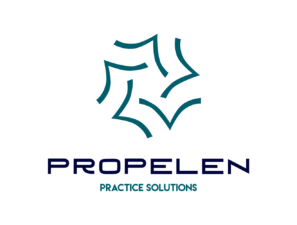Introduction
The integration of Artificial Intelligence (AI) into healthcare is not an overnight process. It’s a long-term journey that requires strategic planning, investment, and a culture of change readiness. For healthcare organizations, starting this journey towards AI integration involves understanding what AI can offer, identifying how it can benefit your organization, and developing a robust plan to implement it effectively.
Understanding AI’s Role in Healthcare
The first step in preparing your organization for AI is understanding what AI is and the potential benefits it can bring to your healthcare setting. AI can analyze vast amounts of data rapidly and accurately, perform tasks consistently, and is available 24/7. This can help improve efficiency, reduce errors, and free up healthcare professionals to focus more on patient care.
Identifying Opportunities for AI Integration
Once you understand the potential of AI, the next step is to identify specific areas in your organization where AI could be beneficial. This might be data-intensive areas, such as diagnostics or health record analysis, or repetitive tasks such as appointment scheduling or prescription refills. It’s also essential to consider the impact of AI on patient care and how it can enhance the patient experience.
Developing a Plan for AI Implementation

Creating a robust plan for AI implementation is critical to ensure its successful integration. This plan should outline the goals for AI, the steps to achieve these goals, and the metrics to measure success. Key considerations during the planning stage include data privacy and security, ethics, and user training. It is vital to ensure that your organization is ready to embrace the changes that AI will bring, and that you have the support and buy-in from key stakeholders.
Executing the Plan and Adapting Along the Way
Implementing AI is not a set-it-and-forget-it process. It requires ongoing monitoring, adaptation, and refinement. As your organization grows and changes, so too should your use of AI. This requires a commitment to continuous learning and improvement, and a willingness to adapt your AI strategy as needed.
Conclusion
AI holds significant potential for healthcare, but realizing this potential requires careful planning and preparation. By understanding AI, identifying opportunities, and developing a robust plan, your healthcare organization can effectively embrace AI and reap the benefits it offers.
At Propelen, we are committed to helping healthcare organizations navigate this journey, offering expert guidance, tailored solutions, and ongoing support. We understand that every healthcare organization is unique, and we strive to provide AI solutions that meet your unique needs and circumstances. We invite you to reach out to us today!
This is the fourth in a series of blog posts about the emergence of Artificial Intelligence in healthcare, written by Propelen LLC CEO Sokhona Sillah. See all articles in this series: ArtificlaI Intelligence and Healthcare
Sokhona Sillah, MHA
- Sokhona Sillah, MHAhttps://propelen.com/author/sokhonasillah/
- Sokhona Sillah, MHAhttps://propelen.com/author/sokhonasillah/
- Sokhona Sillah, MHAhttps://propelen.com/author/sokhonasillah/
- Sokhona Sillah, MHAhttps://propelen.com/author/sokhonasillah/

